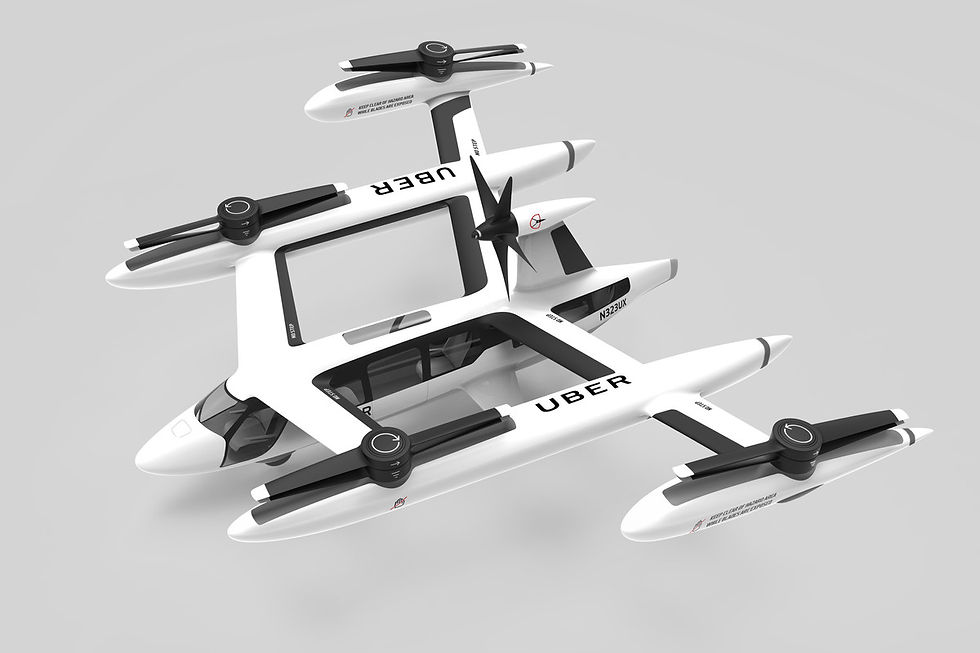The Uber ride of the future may include space travel
- John Calia
- Jan 4, 2022
- 2 min read

In the economic expansion of the 1950’s, the WWII generation moved to the suburbs abandoning public transportation in favor of privately owned automobiles. Those machines came to represent freedom. The consuming population was no longer tied to bus schedules or the ebb and flow of subway lines. Over time, what has had tremendous benefit has led to the unintended consequences of traffic congestion and air pollution. Now, the transportation industry is on the verge of disruption.
The individual transportation market is siloed. Auto manufacturing, fuel delivery and service are separate channels. In the future, they will be integrated, much like the airline industry. When we need a plane, we pay for partial usage of one – a seat – for a specified route. We don’t worry about fuel and aircraft maintenance. That’s the airlines job. When we call for an Uber ride, we’re doing the same thing. But Uber doesn’t solve any of the problems created by the proliferation of cars: traffic and pollution.
Today’s government mandates focus on vehicles. The Biden administration wants half of all auto sales to be electric vehicles by 2030. That’s a stretch given the level today – about 2.5%. Even if it were so, there will still be cars burning fossil fuels and emitting pollutants.
Many locales are deploying creative measures to offset the impact of heavy traffic. In Singapore, sensors measure traffic patterns in real time, messaging drivers to alleviate traffic and parking problems. Reduced traffic equals reduced emissions. In Germany, downloading an app called “Moovel” will enable you to find the fastest way to get from point A to point B, reflecting data about private vehicle traffic and public transport. A similar app is available in Finland.
When all such systems are integrated, it may not make sense to own a car. Perhaps we’ll subscribe to a transportation service. The Boston Consulting Group projects that “cars as a service” could be a $30 to $40 Billion industry within the next ten years.
In the future, the manufacturer of the car will be less important than the customer experience, much like the airline industry today. Think about the last flight you took. Do you remember the type of aircraft you flew? Boeing or Airbus? It’s more likely you remember how you were treated, whether you were on time and if your bags arrived on the same flight as you.
In “The Awakening of Artemis,” summoning a rideshare request can only be fulfilled after making a choice:
"The self-driving vehicle would not take them to their destination without first showing them a menu of options from ride-sharing to short-haul domestic flights to celestial travel."
If cars represented freedom in the 1950’s, an integrated system might offer more freedom in the 2050’s. A combination of Uber, Grub Hub and JetBlue might offer a subscription service with greater convenience. You could order up a trip to the beach or a pizza or a flight to Europe from the same app. It’s anybody’s guess which of today’s mega companies will prevail in this new world.
Perhaps in the future, the Big 3 will be Uber, GM and Delta.






Comments